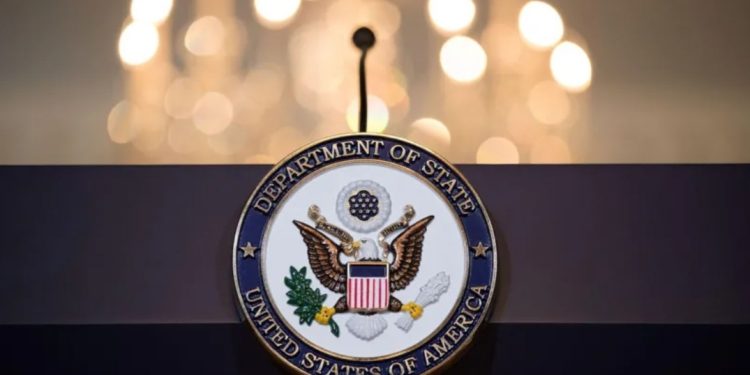No group leaders or organizers of the July 5 violence have been held legally responsible, – reads the Report on Terrorism issued by the US Department of State.
“Far-right groups carried out violence against journalists and activists during a Tbilisi Pride event July 5, 2021. The groups also destroyed an opposition protest site at Parliament, attempted to storm Parliament, and attacked NGO offices. LGBTQI+ activists described feeling hunted, as the locations where they sought refuge were discovered by far-right groups. These events occurred after the prime minister called the planned Tbilisi Pride event “inappropriate.” Throughout the day, the Ministry of Internal Affairs failed to deploy riot control measures. Despite the arrest and later conviction of 28 perpetrators, no group leaders or organizers of the violence have been held legally responsible”, reads the report.
According to the document, far-right, pro-Russia group Alt-Info and far-right networks associated with violent extremism including the Children’s Rights Defenders Society and Georgian March organized and carried out violence against dozens of journalists and activists during the July 5 Tbilisi Pride event and a July 6 protest against the July 5 violence.
“Alt-Info leaders subsequently registered a political party, the Conservative Movement, and opened offices across Georgia. Alt-Info/Conservative Movement leadership has called for and voiced support for violence to achieve their goals”, reads the report.
Georgia continued its robust engagement on counterterrorism issues in 2021 and remained a strong U.S. security partner. The terrorism situation in Georgia in 2021 remained quiet and stable, – concludes the Report.
According to the report, in 2021, Georgia developed its National Counterterrorism Strategy and Action Plan for 2022-26, as its previous counterterrorism strategy concluded. The new strategy and action plan included interagency input and was approved in December by Georgia’s Interagency Standing Committee on Counterterrorism.
“Though the government included some NGOs in discussion of the strategy, a prominent civil society organization criticized the document for not adequately addressing key threats and challenges, including major causes of radicalization in Georgia, and for not assessing the role of the state in the radicalization process”, reads the report.
According to the document, Georgia is generally capable of detecting, deterring, and responding to terrorism incidents.
“The State Security Service of Georgia (SSSG) has the mandate for terrorism-related incidents and investigations and works closely through its Counterterrorism Center with the Ministries of Internal Affairs, Justice, and Defense and the Prosecution Service of Georgia, among others. SSSG is generally well equipped and well trained, and the SSSG’s Counterterrorism Unit continues to receive regular training and equipment, including from international partners. Civil society, journalists, and the international community raised concerns in 2021 regarding the State Security Service’s secret surveillance system and its lack of political neutrality and weak oversight”, reads the document.
By Ana Dumbadze














